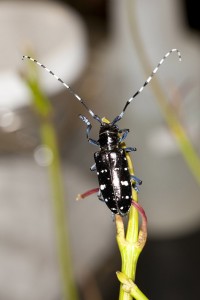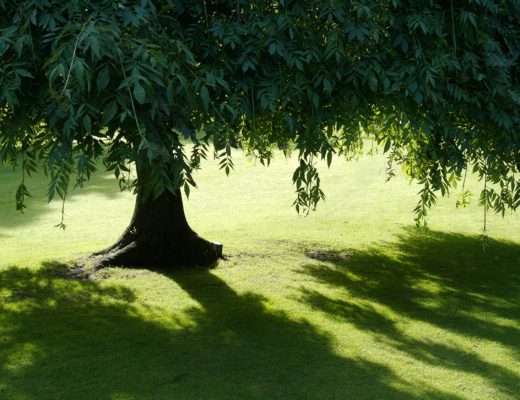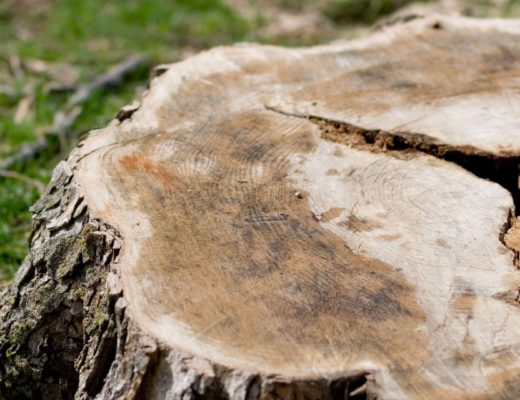In case you haven’t heard, August is Tree Check Month and taking a few minutes from your day to examine your trees for pest threats could save you some grim damage down the road. August is a time of peak emergence for the Asian longhorned beetle (ALB) who earned a reputation for threatening recreational areas, forests and suburban shade trees. If ALB were to become widely established in the U.S., it would have a severe impact on the timber, maple syrup, tree nursery and tourism industries and would take decades to recover.
Spot the Signs
Besides seeing the beetle itself there are distinctive signs to look for while examining your trees.
- Round Exit Holes– adult beetles chew their way out of the tree, leaving one-quarter inch exit holes.
- Oval or round-shaped egg sites- female beetles chew up to 90 oval depressions, called oviposition sites, or egg sites, into the bark of the host tree, and then lay a single egg beneath the bark resembling a wound on the tree.
- Accumulation of frass- As the larvae feed they leave a sawdust-like excrement on the ground or branches.
- Weeping sap- Tree sap may be seen from the wounds or egg sites left by the beetle.
- Tunneling- Larva tunnel through the layers of the tree.
- Pupal chambers- beetle larvae inside the tree will develop (pupate) in a chamber or area in the tree, turning into adult.
- Unreasonable yellowing or dropping of leaves- If you see leaves turning colors sooner than they should be, or broken, dead, or dying branches, this can be a sign that something is wrong.
Trees at risk
- Ash
- Birch
- Elm
- Goldenrain tree
- Horsechestnut
- Katsura
- London planetree
- Maple
- Mimosa
- Mountainash
- Poplar
- Willow
Read up on last year’s blog post August is Tree Check Month: Is your tree safe from Asian Long-horned Beetle? to learn more about ALB. ALB isn’t the only pest you should watch out for, check out Six Pests You Should Know About to stay proactive in your tree’s health.
Report It
If you think you’ve spotted signs of damage from ALB contact your state ALB eradication program office or plant health director’s office.




